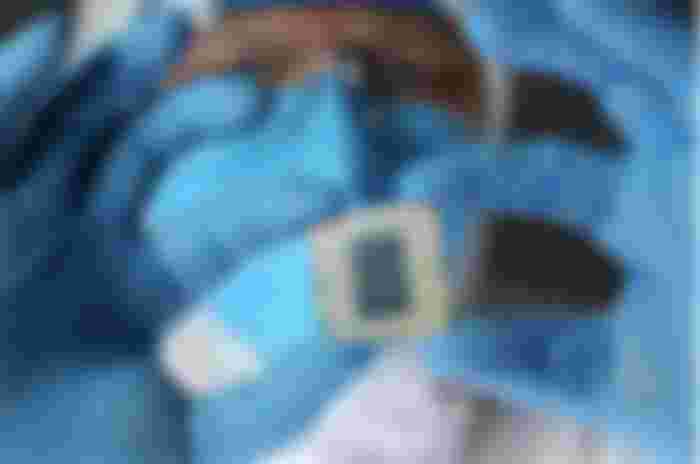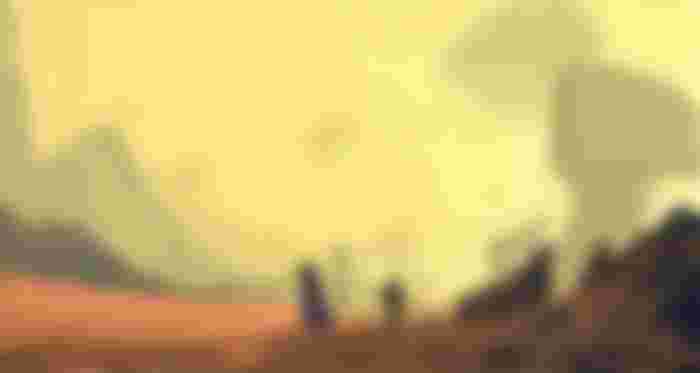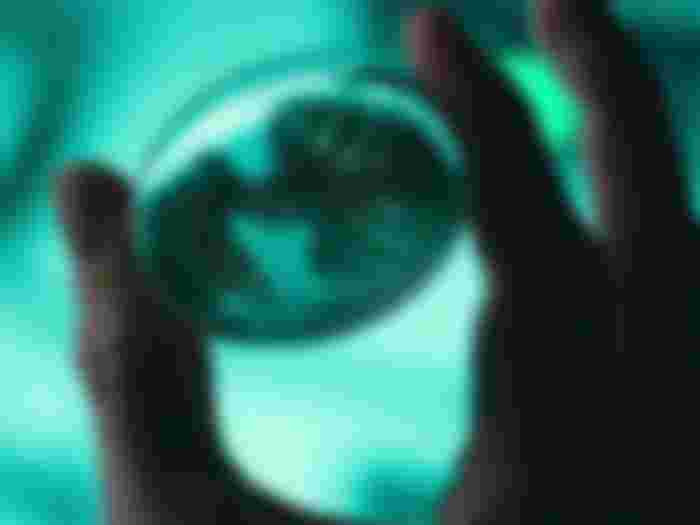(The Library: Book Series Review) Dune, the series of novels, transports you onto another world: Arrakis. On this world, Paul Atreides will face challenges that will shake the order of entire civilisations. The novels are considered to be the pinnacle of Frank Herbert's writings on science-fiction and I agree. Having recently reviewed two other novels by the same author: Dragon in the Sea, The and Eyes of Eisenberg, The, it is my pleasure to present Dune to you and to offer my thoughts and impressions about this fantastic series. First, the Pros and Cons:
Pros
Classic of Science Fiction
Explores very interesting ideas and is much more realised concept than other short stories
Cons
Can get boring near the end of the series as themes tend to repeat themselves (a bit like Star Wars)
Published in 1965 by Frank Herbert, Dune has been made into cinematographic adaptations multiple times. The 1984 version by David Lynch was the most famous and the one that contributed the most strongly to my visual interpretations of various characters and scenes.

I must admit that I was impressed, as a kid, by the mighty sand worms of Dune. Dragons are present even on Arrakis! A more conservative and less visionary concept of those creatures can be seen in the movie Tremors (1990). Obviously however, the version that everyone is waiting for is the Denis Villeneuve adaptation, which comes 36 years after the version by David Lynch and was delayed due the pandemic.
But there were other adaptations, both tried and abandoned (see Alejandro Jodorowsky) and also some that were made into miniseries in 2000 and 2003. Video games were also made on the subject. I can say that I have explored most of the material, by reading the books, seeing the movie adaptations and playing the game! All were interesting.
I loved the concepts related to the spice and the giant worms. There is much to imagine in those novels and as I have written before, Frank Herbert writes in a clear and concise manner which I appreciate.
Being split in various novels, Dune can be appreciated nearly as much as you've got a taste for more. In my case however, the interest faded roughly after reading the God Emperor of Dune.
Here is the chronological order of publication of those novels:
Dune (1965)
Dune Messiah (1969)
Children of Dune (1976)
God Emperor of Dune (1981)
Heretics of Dune (1984)
Chapterhouse: Dune (1985)
More novels were also published by Frank Herbert's family.
Additional concepts that I liked were those of the Bene Gesserit and their complex and generation-spanning programs. The Navigator's Guild was also always mysterious. What to say of the Fremen? Herbert willingly made a typo and forget an "e" to make them Freemen? Muad'Dib and others dwellers of Arrakis display fascinating resilience in the face of challenges. And what of the Mentat and the banning of calculating machines? So many concepts are explored in the Dune series of novels and some of them being specific to humanity's relationship with machines will be explored in other articles.

To sum it up, before we explore more of what those novels have to offer, I highly recommend reading Dune and I also recommend reading a few more of those novels to get to know the author and this creation of his. But it is a long journey and since you are not Fremen, it would be best for you to bring water and stay hydrated. Water is scarce on Arrakis.
Scarcity and Ubiquity
Scarcity is what drives economic organisations and markets. If everything was plentiful, humanity would probably have had fewer wars in its history. But the universe is not like this. Everything is relatively rare in the cosmos. A simple study of stellar nucleosynthesis will show you that even the heaviest atoms are not in production anymore in the solar system; Gold atoms that we have on Earth, for instance, come from the supernova that preceded the sun. The sun will never make atoms heavier than iron. In fact, it is not even massive enough to get to iron (by fusion I mean). To get any new atoms above iron, the solar system will have to wait for another supernova.

As such, there is no new gold atoms being formed on Earth: We are stuck with what we have. And it is this scarcity of gold atoms that drives the price up. It is the same for silver, platinum, palladium, rhodium and all other commodities on Earth.
Scarcity and rarity are also what explains the current valuations of Bitcoin (see my article about gold vs Bitcoin). There can only ever be twenty-one million and as such people who want some need to compete with everyone else. This creates a bidding war and prices rise in response.
In the novel Lord of the Flies, The, recently reviewed here, the commodities were the conch and Piggy's glasses (used to light fires).
In the novel Lord of the Rings, The, recently reviewed here, the commodities were the One Ring and the Silmarils and rings of power.
In Othon le Trisaïeul, the precious commodity is the Epiphyte, an anti-gravity substance.
On planet Pandora from the film Avatar (2010), the commodity is called Unobtainium. This fictitious element does not exist in reality. But the authors picked an evocative name: It is difficult to obtain that commodity.

On Arrakis, the commodity is the Spice. The spice grows in blue crystals on the surface of the desert. It is valued since it provides a capacity to see in the future while also extending the life and consciousness of those who consume it. This capacity, in turn, is invaluable for the Guild navigators who must anticipate stellar trajectories that do not collide with celestial bodies. It is also valued by the Bene Gesserit since it grants them the ability of communion with their ancestors.
Being the source for the waters of life, the spice of Arrakis is central to the Bene Gesserit's prophecy of the coming of the Kwisatz Haderach. Their prophecy can only be realised if the spice can be made into life waters and only if a male can survive drinking it.
This uniqueness of the spice of Arrakis is central to the story line. It transforms Arrakis from an uninteresting world full of hot sands to the very core of civilisation. It is not just at random that we find this crucial element taking on such a vital role in this series of novels.
A Pandora without Unobtainium would never have attracted mankind. A Lord of the Rings without the One Ring would have to be renamed. An Arrakis without the spice would not have meant much to the cosmos.

Currently, on planet Earth, semiconductors are acting like the spice of Arrakis. And so is AI, the militarisation of space and cryptocurrencies. Dividing nations and leading them to war postures. I disagree with the views in the following article and I shall explain why in the future but I still link it. Read it with your critical thinking shield held up high. The author probably had just read this similarly divisive article on the "pillaging of Taiwan by China". Just the title itself shows bias. Read them while keeping in mind the power plays of superpowers as on a Grand Chessboard. A much more comprehensive look at that Chess game is best found in my article: "What is Going on Xinjiang? Genocide or not?"
In a similar fashion, whether we look at Afghanistan's poppy fields or to the Middle East in general, rarity is a driver for war. Another is religion. To be less general, I should specify that it mostly is religious intolerance and religious extremism which leads to wars. Yet, another factor, one which is inherent to human beings is that of resentment. Feelings of inferiority, past injustices and uncomfortable memories are what fuels resentment. What follows is an externalisation of evil and its projection onto others.

The spice is only on Arrakis. Planet Marmola is the only source of Epiphyte. Unobtainium: unique to Pandora.
War, is everywhere.
For ninety generations you and your Bene Gesserit have laboured in secret to produce a living, breathing super-weapon... one that would empower you to overthrow both the Guild and the Emperor. Indeed. This weapon, I am. And these goals, I have achieved. Dune (deleted line)
The Bene Gesserit
In this blog, we previously looked at the genetic enhancement programs undertaken by the Optimen in The Eyes of Heisenberg. Also, Aldous Huxley's Brave New World (reviewed here) where we take a deep dive in "casting" various strata of the population into their genetically predefined roles.

The view expressed in Dune regarding the same subject is similar but different at the same time. The program of the Bene Gesserit, a sisterhood organisation which includes only women, is a genetic enhancement program. Their goal is to create their own messiah, whom they call the Kwisatz Haderach. This messiah, prophesied by ancient texts, is the realisation of their most ambitious program, covering a span of 90 generations of selective breeding. I do not want to expand unnecessarily onto my personal appreciation of the subject. The following quotes serves as a good description of important concepts regarding the Bene Gesserit.
Remember however, that just like in the exceptional movie Pi (Darren Aronofsky, 1998), multiple actors are seeking the same Precious commodity; Some out of religious beliefs, some out of greed. Below, four stills from the movie that evoke this very concept:

Max: "I'm not interested in money. I want to understand our world."

Corporation: "Do you know how rare these are?"

Max: "Look, what do you want in exchange for the chip?"

Rabbi: "Max, you have to give us the number."
We are the secret of the universe. We are the secret. We know of CHOAM in the universe, Combine Honnete Ober Advancer Mercantiles, controlled by the Emperor Shaddam IV and all the great houses of the Landsraad. We know of CHOAM, yet we are the secret. We know of the Bene Gesserit sisterhood, their selective breeding plan for 90 generations to produce the Kwisatz Haderach, whom they will control. The one they call the witches, yet we are the secret. We know of the Guild and the navigators' power to fold space and their control over all interplanetary travel. We know they have the seeing eye, yet we are the secret.
--Reverend Mother Ramallo, Dune

It's very dangerous. The Bene Gesserit sisterhood would use it to see - within. There is a place - terrifying to us. To women. It is said: a man will come, the Kwisatz Haderach. He will go where we can not. Many men have tried.
--Reverend Mother Mohiam, Dune

The Kwisatz Haderach
The super weapon or to some, the Emperor God of Dune. That is the supreme goal of the genetic enhancement program of the Bene Gesserit. Will they succeed in creating their super weapon? I will let you read the novels to find out.
What can be said however is that the main character, Paul Atreides, will experience what is often called "The Journey of Heros". This is what Luke Skywalker also had to go through. This is what Rey Palpatine / Skywalker also has to endure.

Much more fundamentally, that is the journey of Jesus Christ. It was also the journey of Buddha. It was also the journey of Muhammad. Egyptian mythology? Yes, it is also there.
This concept, is as much a part of humanity as the mythology that surrounds it. To quote Joseph Cambpell's “The Power of Religion: Methodological Themes in the Work of Joseph Campbell” (2017):
Mythology has been interpreted by the modern intellect as a primitive, fumbling effort to explain the world of nature (Frazier); as a production of poetical fantasy from prehistoric times, misunderstood by succeeding ages (Muller); as a repository of allegorical instruction, to shape the individual to his group (Durkheim); as a group dream, symptomatic of archetypal urges within the depths of the human psyche (Jung); as the traditional vehicle of man's profoundest metaphysical insights (Coomaraswamy); and as God's Revelation to His children (the Church). Mythology is all of these. The various
judgements are determined by the viewpoints of the judges. (Hero 382)
And this concept of a perfect weapon, the realisation of mythology, of prophecy, as was intended by the Bene Gesserit to overthrow their opponents, sometimes can be more pernicious. Because that creation, which lets us play god, can very well be our downfall. This is the myth of Prometheus once again! Much like Frankenstein, the Bene Gesserit could not anticipate and could not control its creation.
The dangers of modern AI military research will be explored in a future article.

Never forget: In Dune, humans perform calculations. They are called Mentats. Calculating machines have been banned. We can only imagine the reasons that led those future civilisations to make such a drastic choice. The world of Warhammer 40K takes a similar approach as machine intelligence has been banned by this vision of a forty thousands year old humanity which survived the Long Night.
As I have pointed to before, the main danger humanity faces today - and which could be conceptualised as our modern Kwisatz Haderash - is our failure at anticipating all possible future scenarios. It is the core of chaos theory. We are not prescient or omniscient. We act like Dr. Frankenstein yet we don't have the spice! To be prescient is to predict the future. That is the domain of the immaterium: Chaos theory!
Coming up

Coming up next is an article for Intelli Gaming where an important figure will take the stage. That figure is both material and immaterial. It originates from the Immaterium itself! Its manifestations are best expressed through greater daemons of chaos. In the next article, Tzeentch itself, takes the stage to warn us about the ever changing possibilities of the future: Chaos theory!
Thanks for reading!















